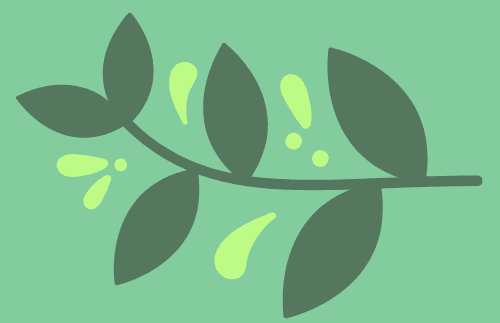Last updated on October 23rd, 2023 at 08:49 pm
Confined to our homes, we certainly have more time to take care of the plants in the garden, the houseplants, the planters or the vegetable garden. Watering does not seem to be a problem. However, there are many advantages to watering your plants less often.
First of all, when the warmer months approach, we know that we will have to water at a more sustained rate. Otherwise, it’s guaranteed drought and flowering will be bad! In fact, all these little tricks allow you to waste less water and save a little during the summer.
And moreover, when you are a little head in the air or during the vacations, it is always reassuring to know that the plants will not die of thirst in a few hours! So here are our tips for a gardener who would like to achieve a less frequent watering of plants in pots or in the ground.
Contents
1) Watering less often starts with making the right plant choices

It’s well known: plants have very different water needs. Some shrubs and flowers are very water-intensive and need more frequent watering. Some plants, on the other hand, are much less water intensive and are therefore the ones you should turn to if you want to water less often. Coming from desert areas, cacti are the first to come to mind (cactus, houseleek…). Nevertheless, there are not only succulents (also called succulents)!
We can also try aromatic plants, as useful as pretty. These include lavender, thyme, sage, bay leaves and rosemary. Think also of the orchid which is happy without too much watering if it is in a bright corner and with pleasant temperatures. Althea, ornamental garlic, night flower, santolin, sweet woodruff, broom, sedum, California poppy… there is no shortage of plants that don’t need much water!
2) Water your plants at the right time to water less often

When the weather is hot, it is advisable to water in the evening to limit water evaporation due to sun exposure and heat. Indeed, in the evening, the cooler temperatures allow the soil to retain water better. By watering at noon, for example, 60% of the water will evaporate, because the ambient temperature is higher. In contrast, the evaporation rate will be only 10% in the evening. Do the math: if the average price of a m3 of water is 3.05 € and you water every 2 days for 5 months, this represents a saving of about 34 € per year for a 100 m² garden! Not bad, right?
3) Install a mulch at the foot of the plants

In its natural state, bare soil does not exist. In our gardens, the soil is usually poorly covered, which can lead to water loss. This is where mulch comes in, as it reduces water loss by maintaining moisture in the soil. It also allows the soil to be protected in hot weather. By heating less, the water will evaporate less quickly. In addition, some mulches will also feed the soil, which is always a plus! Here, opt for a textile, mineral mulch (pozzolan, pottery debris, crushed slate…) or organic material (straw, wood chips, grass clippings, dead leaves…). You can also put clay balls in the pot when repotting and as a mulch to keep the moisture in the soil. Just avoid bark or pine needles that acidify the soil.
4) Choose the right watering system

If you choose your watering system well, you will be able to aim better and therefore save money. This excludes the hose and its powerful flow that is difficult to control! And if automatic watering with a programmer is practical, you can also rely on a simple watering system with a sprayer or drip. This allows controlled watering directly at the feet of the plants via a small network of pipes.
5) You want to save water? Then try this!

If you want to reduce your watering to save money, this last point will interest you! It is indeed about tips to recover water. To do this, it is of course possible to install a rainwater collector. Nevertheless, it does not stop there. You can also recuperate the water used to cook your eggs, pasta or vegetables. The water in question must be unsalted and cooled before watering. By using this nutrient-rich water for watering, you will avoid waste and your plants will be healthy! Finally, it is also possible to recover water from your aquarium. It contains a lot of nitrogen like garden center fertilizers. This unusual water reserve is therefore excellent for watering flowers and green plants.


